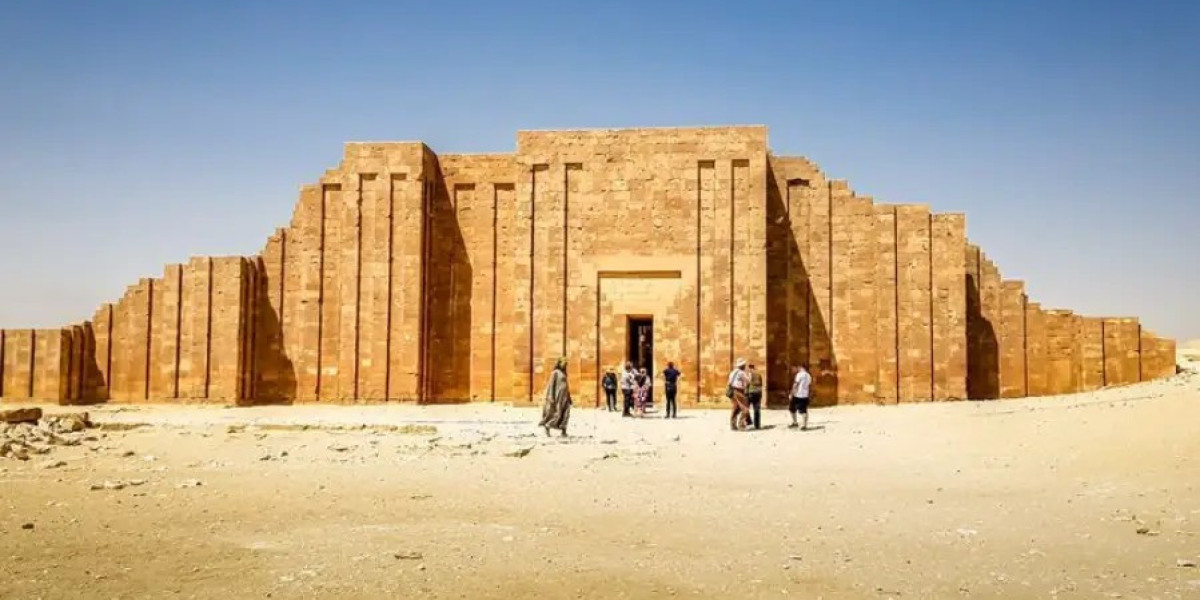When exploring the rich tapestry of ancient Egyptian civilization, one cannot overlook Memphis, the erstwhile capital that played a pivotal role in the nation’s history. Nestled near the banks of the Nile, this archaeological gem offers a glimpse into a time when pharaohs ruled and gods were worshiped. In this article, we’ll answer the question: Where is Memphis Egypt? and explore its historical significance and what to expect when visiting this remarkable site.
The Location of Memphis
Memphis is situated approximately 20 kilometers (12 miles) south of Cairo, the bustling capital of modern Egypt. Specifically, it lies on the west bank of the Nile, near the present-day village of Mit Rahina in the Giza Governorate. This strategic location was once at the heart of ancient Egypt, serving as a cultural and political hub.
Getting to Memphis
Reaching Memphis is straightforward. If you’re starting from Cairo, you can hire a taxi or join an organized tour. The drive typically takes around 30 minutes, making it an easy day trip for visitors interested in exploring Egypt’s ancient heritage. The site is clearly marked, and you’ll find local guides and vendors ready to enhance your experience.
A Glimpse into History
Founded around 3100 BCE by King Narmer, who is credited with uniting Upper and Lower Egypt, Memphis flourished during the Old Kingdom (c. 2686–2181 BCE). As the political and cultural heart of ancient Egypt, it was home to the powerful Pharaohs and was a vital center for trade and commerce.
Memphis was dedicated to Ptah, the god of creation and craftsmanship, and its Great Temple was a focal point for worship. The city was renowned for its impressive architecture, including grand temples and colossal statues, symbolizing its significance in ancient Egyptian society.
Although Memphis eventually ceded its status as the capital to Thebes and other cities, it continued to be a vital religious center. Today, it is recognized as a UNESCO World Heritage Site, safeguarding its legacy for future generations.
Exploring the Ancient City
Visiting Memphis provides an opportunity to walk through history. Here are some of the key attractions you shouldn’t miss:
The Alabaster Sphinx
One of the most iconic features of Memphis is the Alabaster Sphinx, a stunning sculpture dating back to the reign of Pharaoh Amenhotep II. This magnificent structure measures approximately 8 meters (26 feet) long and 3 meters (10 feet) high. Carved from a single block of alabaster, it exemplifies the artistry of ancient Egyptian craftsmen and stands as a testament to the grandeur of Memphis.
The Open-Air Museum
Adjacent to the ruins of Memphis, the open-air museum showcases a wealth of artifacts unearthed from the site. Here, visitors can see an array of statues, including those of Ramses II and other prominent figures from ancient Egypt. The museum provides essential context for the historical significance of Memphis and allows for a deeper appreciation of the artistic achievements of its people.
The Temple of Ptah
Although much of the Temple of Ptah has been lost to time, remnants still exist that highlight its former glory. Once a grand structure dedicated to the god Ptah, the temple served as a central place for worship and ritual. The ruins illustrate the architectural styles of ancient Egypt and the religious practices that were integral to its civilization.
Practical Tips for Your Visit
Best Time to Visit
The ideal time to visit Memphis is during the cooler months, from October to April. These months provide comfortable temperatures for exploring the site, while summer can be extremely hot.
Dress Appropriately
When exploring archaeological sites in Egypt, dressing modestly is essential. Opt for lightweight, breathable clothing and wear comfortable shoes for walking. Make sure to pack a hat and sunscreen, as the sun can be quite intense.
Stay Hydrated
Exploring the ruins can be physically demanding, so it’s essential to stay hydrated. Always carry water with you to ensure you remain refreshed during your visit.
Consider Hiring a Guide
While the site is accessible to visitors, hiring a knowledgeable guide can significantly enhance your experience. Guides can provide valuable insights, share captivating stories, and point out significant artifacts that might go unnoticed.
The Significance of Memphis Today
Although Memphis is now in ruins, its historical importance cannot be overstated. The city represents the zenith of ancient Egyptian civilization, offering invaluable insights into the culture, religion, and daily life of the time. For historians and archaeologists, Memphis is a treasure trove of information about the past.
Visitors to Memphis often leave with a deeper understanding of ancient Egyptian society, its achievements, and its lasting impact on the world. The site’s tranquil atmosphere allows for reflection on the greatness that once was, making it a must-visit for anyone interested in the rich history of Egypt.
Conclusion
Memphis, Egypt, may not be as widely recognized as the Pyramids of Giza, but its historical significance is equally compelling. This ancient capital, with its strategic location, rich history, and remarkable artifacts, offers a unique window into the past. Whether you are a history enthusiast, an archaeology buff, or simply a curious traveler, exploring Memphis provides a rare opportunity to connect with the ancient world. As you wander through the remnants of this once-great city, you will gain a profound appreciation for a civilization that has fascinated people for millennia.








